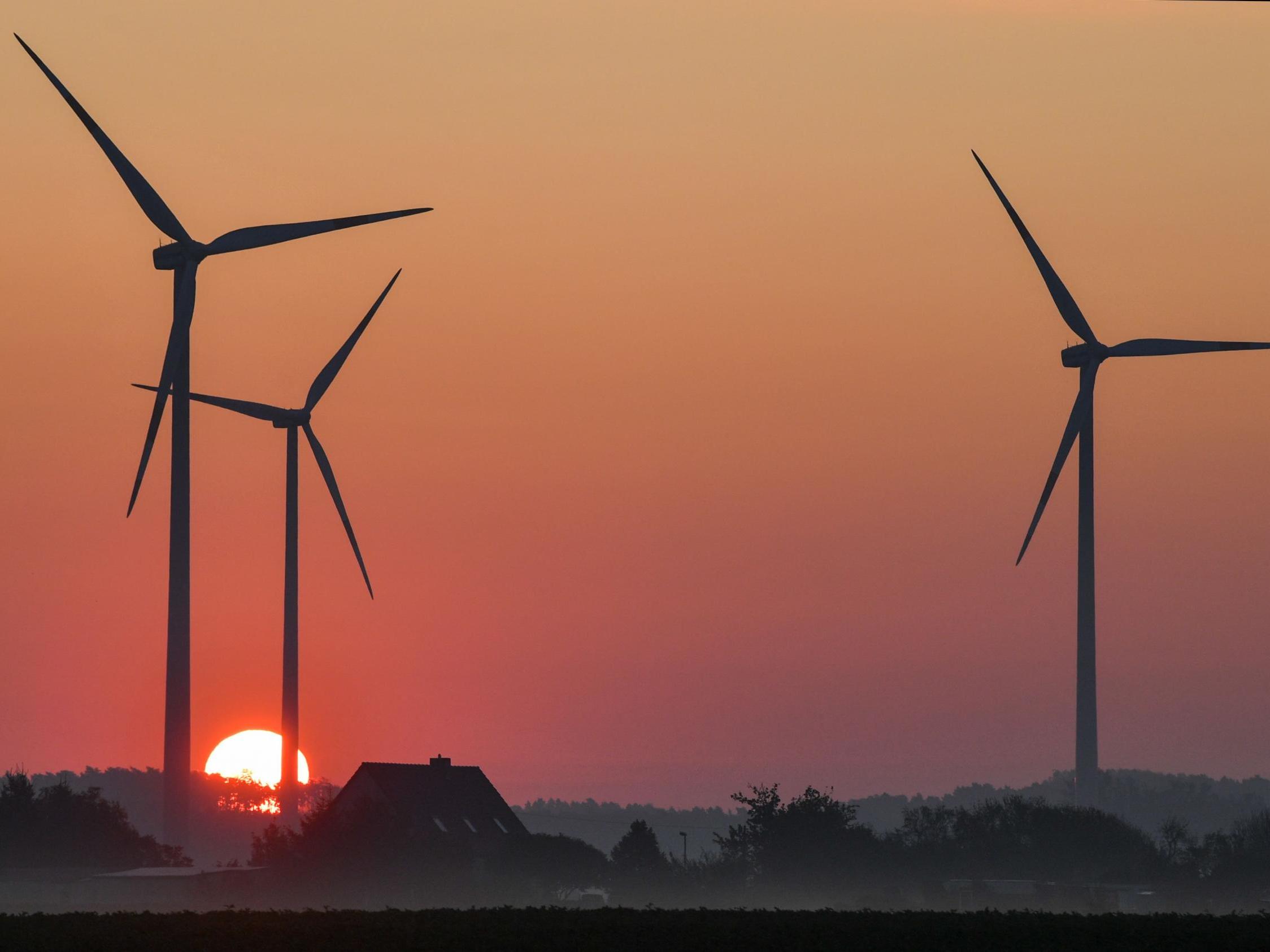Renewable energy providing more electricity than coal and nuclear power combined in Germany
Solar, wind, biomass and hydroelectric power generates nearly half of country’s output

Your support helps us to tell the story
From reproductive rights to climate change to Big Tech, The Independent is on the ground when the story is developing. Whether it's investigating the financials of Elon Musk's pro-Trump PAC or producing our latest documentary, 'The A Word', which shines a light on the American women fighting for reproductive rights, we know how important it is to parse out the facts from the messaging.
At such a critical moment in US history, we need reporters on the ground. Your donation allows us to keep sending journalists to speak to both sides of the story.
The Independent is trusted by Americans across the entire political spectrum. And unlike many other quality news outlets, we choose not to lock Americans out of our reporting and analysis with paywalls. We believe quality journalism should be available to everyone, paid for by those who can afford it.
Your support makes all the difference.Renewable sources of energy produced more electricity than coal and nuclear power combined for the first time in Germany, according to new figures.
Solar, wind, biomass and hydroelectric power generation accounted for 47.3 per cent of the country’s electricity production in the first six months of 2019, while 43.4 per cent came from coal-fired and nuclear power plants.
Around 15 per cent less carbon dioxide was produced than in the same period last year, according to figures published by the Fraunhofer Institute for Solar Energy Systems (ISE) in July.
However, some scientists have attributed the high renewable power output to favourable weather patterns and “market-driven events”.
Fabian Hein, from the think tank Agora Energiewende, told Deutsche Welle the 20 per cent increase in wind production was the result of particularly windy conditions in 2019.
Meanwhile, electricity production from solar panels rose by six per cent, natural gas by 10 per cent, while the share of nuclear power in the country’s electricity production has remained virtually unchanged.
Black coal use fell by 30 per cent compared to the first half of 2018, and lignite – a coal-like substance formed from peat – fell by 20 per cent.
However, over the same period, electricity production by natural gas rose by 10 per cent.
Professor Bruno Burger, of the Fraunhofer ISE, said the drop in coal use was the result of a market-driven “fuel switch” from coal to gas.
He attributed the switch to low gas prices combined with a rise in the cost of carbon dioxide allowances in the EU Emissions Trading System.
Yan Qin, lead carbon analyst at final data business Refinitiv, told Clean Energy Wire: “Since January, we have seen the high carbon price really making the perfect market for gas.”
"We really see an interesting phenomenon: in the daily German power market, a high carbon price and very low gas price is really pushing gas in front of lignite.”
Renewables accounted for 40 per cent of Germany’s electricity consumption in 2018, according to government figures.
While in the UK, 29 per cent of electricity was sourced from renewables last year.
Germany is aiming to phase out its nuclear power plants by 2022. Its renewable energy has been rising steadily over the last two decades thanks in part to the Renewable Energy Act (EEG), which was reformed last year to cut costs for consumers.
But Germany still relies heavily on coal, gas and lignite for its energy needs.
Germany’s reluctance to end its dependence on coal saw hundreds of climate activists storm one of the country’s biggest open-pit coal mines in June to protest against fossil fuel use.
Join our commenting forum
Join thought-provoking conversations, follow other Independent readers and see their replies
Comments